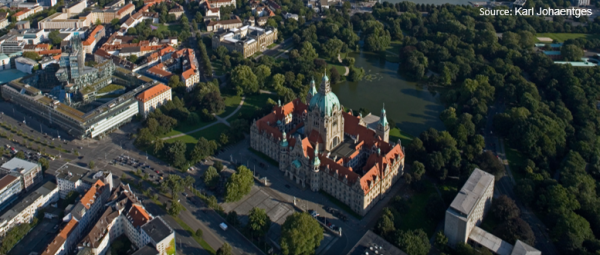Hannover, DE

With a population of over 500,000 inhabitants, Hannover is the largest city and capital of the federal state of Lower Saxony, in northwest Germany. The city has been a pioneer in implementing measures regarding sustainable development and approved its first local climate protection programme in the mid-1990s.
Energy efficiency has been a consideration since the end of World War II in Hannover as around half of the city´s housing stock was built in the 1950s and 1960s to low energy retention standards. Since many of the buildings were still in their original condition, except in some instances where modern windows have been installed, the city carried out an extensive retrofitting programme for public and private buildings between 2006 and 2012. The refurbishment included the connection of the buildings to a district heating system, generating heat with wood pellets, and the improvement of thermal insulation for more energy savings and better comfort in extreme temperatures. Additionally, the municipality also offered training courses on energy efficiency to architects and craftsmen and launched a website to inform tenants and landlords about energy saving opportunities, insulation, as well as heating and cooling.
In order to keep moving forward with the implementation of smart solutions to reduce greenhouse gas emissions and save energy, the city of Hannover has drafted a Climate Protection Programme for 2008-2020 including an ambitious target to cut CO2emissions by 40% by 2020 and GHG emissions by 95% as well as energy consumption by 50% by 2050. As a member of the Replication Cluster of the EU-GUGLE and SINFONIA projects, Hannover will have the opportunity to share knowledge and experiences on energy-efficient building refurbishment and innovative solutions for smarter cities.
Ute Heda
Project Manager
Environment and City Greenspace